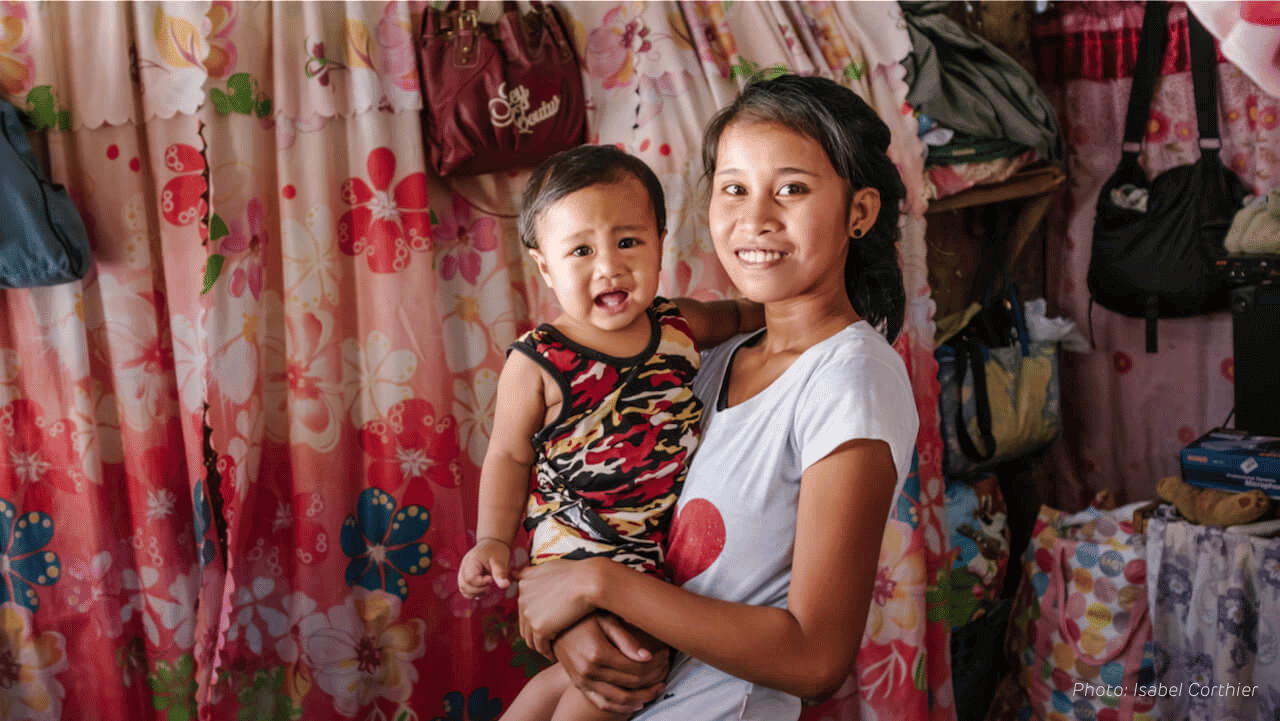08
Feb 2023
Minors Should Be Able to Access Contraception
Puerto Princesa City, Tuesday, 7 February 2023 — Roots of Health (Ugat ng Kalusugan), a Palawan-based organization that provides educational and clinical services to women and young people, has called on government to allow adolescent access to family planning commodities and services. This, as the Senate held a committee hearing, Tuesday, on three bills that seek to prevent teen pregnancies in the country.
Roots of Health Executive Director Amina Evangelista-Swanepoel, speaking at the hearing said that provider bias is the biggest issue affecting teen’s access to contraceptive commodities and reproductive health services that include prenatal care.
“Roughly half of the health care workers we work with in Palawan do not approve of young people having sex, so when youth try to access services, they are scolded, shamed, and denied services,” Evangelista-Swanepoel shared.
“Therefore we urge the protection of adolescents’ rights to access service with specific legislation that will supersede previous age restrictions to accessing these,” she added.
According to Evangelista-Swanepoel, at the minimum, the parental consent clause in the RH Law should be lowered to youth under 15 years old as was done in the expanded HIV Law.
All three teenage pregnancy prevention bills filed by Sen. Risa Hontiveros (SBN 372), Sen. Imee Marcos (SBN 651), and Sen. Bong Revilla (SBN 1209) call for adolescents who need access to services to get these. However, the reality is that age restrictions in the Reproductive Health (RH) Law allow health providers to refuse young people the services they seek.
Evangelista-Swanepoel also urged training and guidance for healthcare workers in providing compassionate nonjudgmental care to ensure that young people get the services they need.
Sen. Hontiveros, chairperson of the Committee on Women, Children, Family Relations & Gender Equality, in her opening statement cited that 386,000 Filipino girls (or 6.8% of girls aged 15-19) have begun childbearing in 2021 alone. Although teen pregnancies in this age range have declined from 13.7% a decade ago, pregnancies among girls aged 10-14 are increasing with 2,113 births recorded in 2020 (PSA data) to 2,299 in 2021 (DOH data).
Working w/ the Sangguniang Kabataan
The three Senate bills being deliberated mandate the Sanggunian Kabataan (SK) to develop interventions in arresting causes of adolescent pregnancies at the community level.
Evangelista-Swanepoel attests to the SK members’ enthusiasm in helping their peers. Roots of Health has trained 1,500 SKs in designing interventions that promote healthy relationships and good sexual and reproductive health (SRH), and that prevent teenage pregnancies and HIV and STI transmission. SKs have also been instrumental in training barangay health center staff on youth-friendly services.
“This is something we can scale up. But SKs should be provided training of trainers support so they can help roll out comprehensive sex ed, service delivery referrals, and peer counseling,” Evangelista-Swanepoel emphasized.
“With our team’s guidance and support, the SKs carried out effective programs that increase knowledge among young people and ensure they know how to access services if and when they need them,” she shared.
Currently, most health centers do not work with SKs on demand generation and provision of services, a missed opportunity, according to Evangelista-Swanepoel.
Comprehensive sex ed in schools
One of the factors driving teenage pregnancies is still the lack of credible information on sexuality and reproductive health.
According to Evangelista-Swanepoel, the NGO’s pre-test and post-test data from 65,000 young people they have taught since 2012 reveal low levels of knowledge about SRH. For example, 70% of high school students believe that jumping up and down is an effective way to avoid pregnancy. Some 79% still believe that withdrawal is an effective method of pregnancy prevention.
In a youth survey the NGO conducted in 2017, 2019, and 2021 among 1,500 Puerto Princesa youth aged 15-24, some 58% of young people said their first sexual experience was unplanned while 12% said their first sexual encounter was coerced. Sixty-four percent (64%) said that they did not use a condom in their last sexual encounter.
This situation underpins the demand for comprehensive sexuality education (CSE) in schools, and the proposed legislative measures aim to expedite CSE rollout nationwide.
“Teachers have told us repeatedly how grateful they are for our support because they are not equipped to teach CSE themselves. An important step in the rollout of CSE in schools is the training of CSE coordinators who can train and support other teachers. The Department of Education (DepEd) must allocate funds to ensure this capacity-building training,” Evangelista-Swanepoel shared.
Evangelista-Swanepoel also recommended DepEd to partner with the Commission on Population and Development (POPCOM) and the Department of Health (DOH) to disseminate materials from the I CHOOSE campaign which produces SRH materials for young audiences in the Filipino language through its website www.malayaako.ph and its social media pages.
National information system
On the proposed national information system to track adolescent pregnancies, Roots of Health also recommended the creation of a dashboard to analyze and display data collected from the Young Adult Fertility and Sexuality Study (YAFS), the National Demographic and Health Survey (NDHS), and by LGUs – which are more timely and granular.
They called on DOH and POPCOM to include a data indicator on teen contraceptive use throughout the country to keep track of how many Filipino youth are using contraception and monitor any increases or decreases to this.
“We appeal to our lawmakers from both houses of Congress to take a sustained active role in championing the rights of Filipino adolescents, on whom the development and well-being of this nation rest,” Evangelista-Swanepoel urged.
The teenage pregnancy prevention bills in the Senate seek to provide comprehensive, age-appropriate sex education programs for young Filipinos nationwide and social protection programs for teenage mothers which include maternal health services, workshops, and livelihood programs. Seven similar bills are also being deliberated at the lower house.
###





